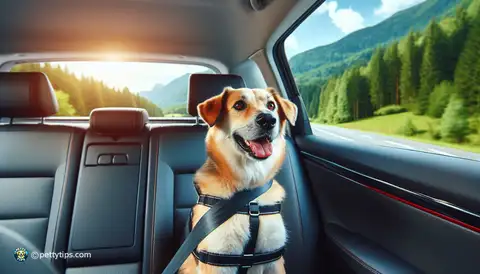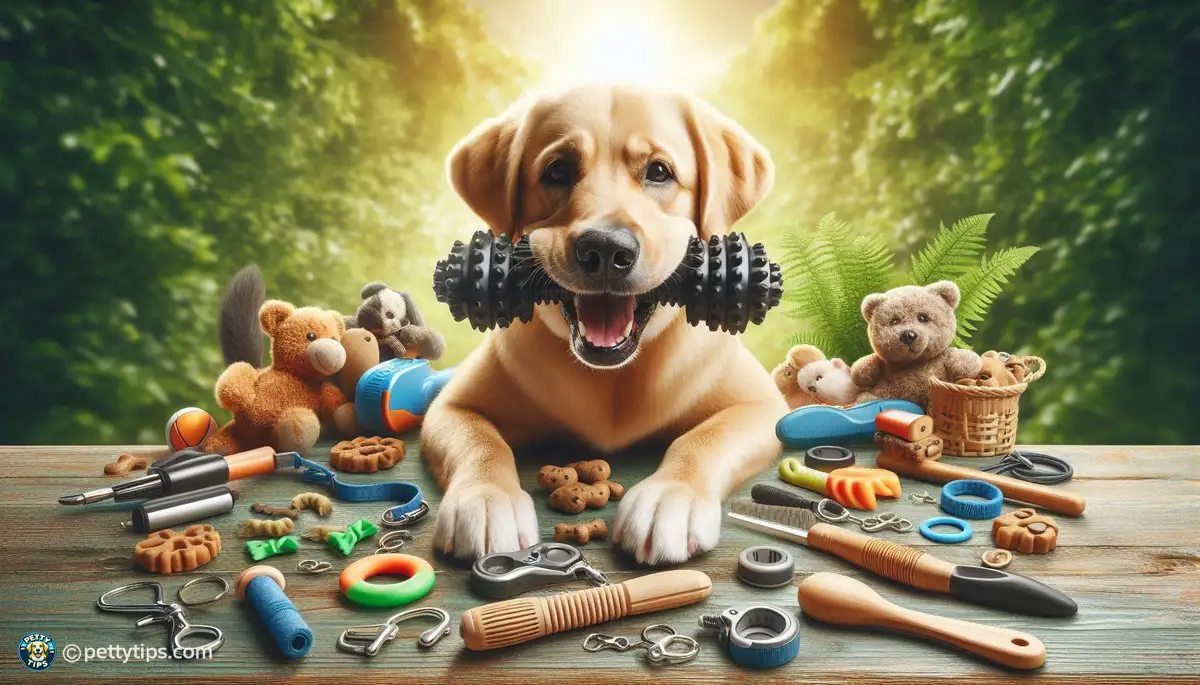
Ensuring Safety: Tips for Securely Traveling with Your Dog
Miriam Ramírez - Sep 22, 2024 - 6 min read


Dogs chew—it's a natural instinct. However, when this behavior becomes destructive, it can be frustrating for both you and your furry friend. destructive chewing typically involves gnawing on objects like furniture, shoes, or even walls, causing damage and potential safety hazards. Understanding why dogs engage in this behavior is the first step in effectively addressing it. Often, destructive chewing stems from boredom, anxiety, teething, or a lack of appropriate outlets for energy. By recognizing the triggers and underlying reasons behind your dog's chewing habits, you can begin to implement strategies to curb them effectively.
The consequences of destructive chewing can extend beyond the physical damage to your belongings. It can also pose risks to your dog's health and well-being. Ingesting foreign objects can lead to gastrointestinal obstructions or choking hazards, requiring costly veterinary intervention. Moreover, habitual chewing can indicate underlying stress or anxiety in your dog, which, if left unaddressed, may manifest in other problematic behaviors. Therefore, it's crucial to address destructive chewing promptly to ensure the safety and happiness of both you and your canine companion.
A tired dog is less likely to engage in destructive behaviors, including chewing. Ensuring your dog gets enough physical exercise and mental stimulation is key to preventing boredom-induced chewing. daily walks, interactive play sessions, and engaging toys can help channel your dog's energy in a positive direction, reducing the likelihood of destructive chewing out of sheer boredom.
Creating a stimulating environment for your dog can also deter destructive chewing. Offer a variety of toys, puzzle feeders, and interactive games to keep your dog mentally engaged and entertained. Rotating toys regularly can prevent boredom and novelty-seeking behavior, reducing the temptation to chew on inappropriate items. Additionally, providing safe chewing alternatives, such as rubber chew toys or dental chews, can satisfy your dog's natural urge to gnaw without causing damage to your belongings.
One of the most effective ways to prevent destructive chewing is to supervise your dog closely, especially in situations where they may be tempted to indulge in inappropriate chewing. When you're unable to supervise, confine your dog to a safe area, such as a crate or designated room, equipped with appropriate chew toys. This helps prevent access to forbidden objects and minimizes the opportunity for destructive behavior.
Using positive reinforcement techniques can help redirect your dog's chewing behavior towards more desirable alternatives. Whenever you catch your dog chewing on an appropriate item, such as a toy or bone, praise and reward them with treats or verbal praise. Consistency is key—reinforce the behavior you want to see more of, while redirecting and discouraging destructive chewing without resorting to punishment, which can exacerbate anxiety and stress.
For some dogs, destructive chewing may be a symptom of underlying anxiety or stress. Identifying the root cause of your dog's emotional distress is crucial in addressing this behavior effectively. Environmental changes, separation anxiety, or past trauma can all contribute to feelings of anxiety in dogs. Consulting with a veterinarian or professional dog behaviorist can help develop a tailored treatment plan to address your dog's specific needs and alleviate their anxiety through behavior modification techniques, medication, or environmental adjustments.
In addition to physical exercise, mental stimulation is essential for a dog's overall well-being and can help alleviate boredom-induced chewing. Incorporate activities that engage your dog's mind, such as obedience training, interactive games, or scent work. Teaching new tricks or providing food puzzles can also challenge your dog mentally, preventing boredom and reducing the likelihood of destructive chewing as a result of excess energy or frustration.
Destructive chewing in dogs can be a challenging behavior to address, but with patience, consistency, and the right strategies, it's entirely manageable. By understanding the underlying causes of destructive chewing, implementing preventive measures, and addressing any underlying issues, you can help your dog develop healthier chewing habits and create a harmonious living environment for both of you. Remember, each dog is unique, so be patient and flexible in finding the approach that works best for your furry friend. With time and dedication, you can successfully prevent and manage destructive chewing, ensuring a happy and fulfilling relationship with your canine companion.